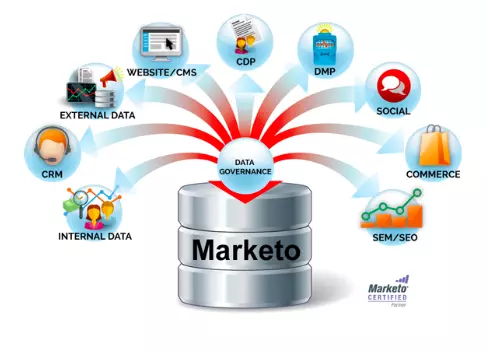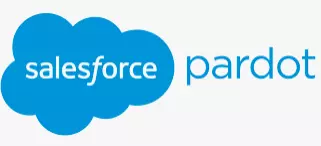Marketing Automation
Definition
Marketing automation is using software to automate repetitive marketing tasks and workflows.
Description
This technology allows businesses to streamline their marketing efforts, reduce manual work, and improve the efficiency and effectiveness of their marketing campaigns.

Its software typically includes tools for email marketing, social media marketing, lead generation, customer segmentation, and analytics. These tools are designed to help businesses create targeted and personalised campaigns that engage and convert leads into customers.
A business may use this software to send personalised emails to subscribers based on their behaviour and interests, such as abandoned cart reminders or product recommendations. The software can also track customer interactions with the business across multiple channels, such as website visits and social media engagement, to better understand their preferences and behaviours.
Marketing automation software can also integrate with customer relationship management (CRM) systems, enabling businesses to manage customer data, track customer interactions, and analyse customer behaviour to inform future marketing efforts.
Importance of Marketing Automation
It is becoming increasingly crucial for businesses of all sizes due to the following reasons:
- Increased Efficiency: It helps businesses automate repetitive tasks and workflows, such as lead nurturing and email marketing campaigns, freeing up valuable time for marketers to focus on other essential tasks.
- Improved Lead Generation: With this, businesses can create targeted and personalised campaigns that engage leaders and move them through the sales funnel more effectively.
- Enhanced Customer Experience: This allows businesses to deliver personalised and relevant content to customers, improving their experience and increasing loyalty and retention.
- Better Analytics: This software provides businesses with detailed analytics and reporting, allowing them to track the effectiveness of their campaigns and make data-driven decisions to optimise their marketing efforts.
- Scalability: It allows businesses to scale their marketing efforts as they grow without additional resources or staff.
How to begin with marketing automation?
If you’re interested in getting started with marketing automation, here are some steps you can follow:
- Define Your Goals: Identify and determine how it can help you achieve them. This will help you choose the right automation tools and create a targeted strategy.
- Choose a Right Tool: Research and select a tool that fits your needs and budget. Some popular options include HubSpot, Marketo, and Pardot.
- Set Up Your CRM: Set up a customer relationship management (CRM) system to track customer interactions and data. This will help you create targeted, personalised campaigns that resonate with your customers.
- Develop a Lead Nurturing Strategy: Create a lead nurturing strategy that aligns with your marketing goals and incorporates automation tools to streamline the process.
- Create Targeted Campaigns: Use automation tools to create targeted and personalised campaigns that engage and convert leads into customers. This can include email marketing campaigns, social media campaigns, and targeted advertising.
- Analyse Results: Use analytics and reporting to track the effectiveness of your campaigns and make data-driven decisions to optimise your marketing efforts.
Best Marketing Automation Tools
Various tools are available on the market, each with strengths and features. Some popular options include:
HubSpot
HubSpot offers a comprehensive suite of automation tools, including email marketing, social media management, lead scoring, and more.
HubSpot is a popular tool that offers a range of features designed to help businesses streamline their marketing efforts and improve their overall growth.

Some key features of HubSpot include:
- Marketing Automation: HubSpot’s tools allow businesses to automate email marketing, lead nurturing, and other marketing campaigns.
- CRM: HubSpot’s customer relationship management (CRM) system helps businesses track and manage customer interactions and data.
- Sales Tools: HubSpot offers sales tools, including lead scoring, prospecting, and pipeline management, to help businesses improve their sales efforts.
- Content Management: HubSpot’s content management system (CMS) allows businesses to create and manage their website and blog content in one place.
- Analytics and Reporting: HubSpot’s analytics and reporting tools allow businesses to track the effectiveness of their marketing efforts and make data-driven decisions to optimise their campaigns.
- Social Media Management: HubSpot’s tools allow businesses to schedule and publish social media posts, monitor social media activity, and analyse social media performance.
- Integrations: HubSpot integrates with various third-party tools, including Salesforce, Zapier, and WordPress, to provide businesses with a comprehensive marketing automation solution.
Marketo
Marketo is a robust automation platform that offers advanced features like artificial intelligence and predictive analytics to help businesses improve their marketing efforts.

- Marketing Automation: Marketo’s automation tools allow businesses to automate email marketing, lead nurturing, and other marketing campaigns.
- Lead Management: Marketo’s tools help businesses track and manage leads throughout the customer journey.
- Account-Based Marketing (ABM): Marketo’s ABM tools allow businesses to create personalised marketing campaigns for targeted accounts.
- Analytics and Reporting: Marketo’s analytics and reporting tools give businesses insights into their marketing performance and ROI.
- Sales Tools: Marketo offers a range of sales tools, including lead scoring, sales insights, and account profiling, to help businesses improve their sales efforts.
- Web Personalization: Marketo’s tools allow businesses to create personalised experiences for website visitors based on their behaviour and preferences.
- Integrations: Marketo integrates with various third-party tools, including Salesforce, Google Analytics, and LinkedIn, to provide businesses with a comprehensive marketing automation solution.
Pardot
Pardot is a automation tool designed specifically for B2B businesses, offering features like lead scoring, account-based marketing, and Salesforce integration.

Some key features of Pardot include:
- Email Marketing: Pardot’s tools allow businesses to create and send personalised email campaigns to their leads and customers.
- Lead Management: Pardot’s tools help businesses track and manage leads throughout the customer journey.
- Lead Scoring: Pardot’s lead scoring tools allow businesses to prioritise leads based on their level of engagement and interest.
- Forms and Landing Pages: Pardot’s forms and landing page tools allow businesses to create custom forms and landing pages to capture leads and track conversions.
- Analytics and Reporting: Pardot’s analytics and reporting tools give businesses insights into their marketing performance and ROI.
- Salesforce Integration: Pardot is owned by Salesforce and is fully integrated with Salesforce’s CRM platform, allowing businesses to seamlessly manage their leads and customer data.
- Social Media Marketing: Pardot’s social media marketing tools allow businesses to create and schedule social media posts, track engagement, and measure ROI.
ActiveCampaign
ActiveCampaign offers a wide range of automation features, including email marketing, CRM, and lead scoring, as well as advanced segmentation and automation workflows.

ActiveCampaign is a tool designed to help businesses automate their marketing and sales processes. Some key features of ActiveCampaign include:
- Email Marketing: ActiveCampaign’s email marketing tools allow businesses to create and send personalised email campaigns to their leads and customers.
- Marketing Automation: ActiveCampaign’s marketing automation tools help businesses create automated workflows and campaigns to engage leads and customers throughout the customer journey.
- CRM Integration: ActiveCampaign is fully integrated with various CRM platforms, allowing businesses to seamlessly manage their leads and customer data.
- Lead Scoring: ActiveCampaign’s lead scoring tools allow businesses to prioritise leads based on their level of engagement and interest.
- Site Tracking: ActiveCampaign’s site tracking tools allow businesses to track user behaviour on their website and trigger personalised campaigns based on that behaviour.
- SMS Marketing: ActiveCampaign’s SMS marketing tools allow businesses to create and send text message campaigns to their leads and customers.
- Sales Automation: ActiveCampaign’s sales automation tools allow businesses to automate their sales processes, including lead qualification and lead follow-up.
Mailchimp
Mailchimp is a popular email marketing platform offering basic marketing automation features, such as email automation and abandoned cart emails.

Mailchimp is a popular email marketing and automation platform offering various features to help businesses grow and engage their audience. Some key features of Mailchimp include:
- Email Marketing: Mailchimp’s email marketing tools allow businesses to create and send email campaigns to their audience, with options for personalization, segmentation, and automation.
- Marketing Automation: Mailchimp’s automation features allow businesses to create automated workflows and campaigns that trigger based on subscriber behaviour or data.
- Landing Pages: Mailchimp’s page builder allows businesses to create custom landing pages to capture leads and drive conversions.
- Audience Management: Mailchimp’s audience management tools allow businesses to manage and segment their email lists based on subscriber data and behaviour.
- Integrations: Mailchimp integrates with other marketing and sales tools, including social media platforms, e-commerce platforms, and customer relationship management (CRM) software.
- Analytics: Mailchimp provides detailed analytics and reporting on email campaign performance, audience engagement, and more.
- Mobile App: Mailchimp’s mobile app allows businesses to manage their email campaigns, track analytics, and stay connected with their audience on the go.
Example
One brand example of marketing automation is Airbnb. Airbnb uses marketing automation tools to send personalised messages and recommendations to their customers based on their previous booking behaviour and automate their email campaigns and social media posts.

This helps Airbnb to engage its customers and increase their loyalty and repeat bookings.
FAQ
What is marketing automation?
It uses software tools and technologies to automate repetitive marketing tasks and workflows, such as email campaigns, social media posting, lead generation, and customer segmentation.
What are the benefits of marketing automation?
The benefits include increased efficiency, better targeting and personalization, improved lead nurturing and conversion rates, and more accurate measurement and reporting of marketing performance.
What are some standard features of marketing automation tools?
Common features of these tools include email marketing, lead management and scoring, campaign management and automation, social media management, and analytics and reporting.
How do I get started with marketing automation?
To get started with it, you should first define your marketing goals and strategies, identify your target audience, and select a marketing automation tool that fits your needs and budget. You should also plan your campaigns and workflows in advance and ensure that your marketing automation processes integrate seamlessly with your other marketing and sales activities.
How do I measure the ROI of marketing automation?
To calculate the ROI of it, you should track metrics such as lead generation and conversion rates, customer retention and lifetime value, revenue and sales growth, and cost savings and efficiency gains. You should also regularly analyse and optimise your marketing automation processes to ensure you achieve the best possible results.
What are some best practices for marketing automation?
Best practices include setting clear goals and strategies, segmenting your audience based on behaviour and interests, personalising your messages and content, testing and optimising your campaigns and workflows, and integrating your marketing automation tools with your other marketing and sales activities.
What are some common mistakes to avoid in marketing automation?
Common mistakes to avoid in this include sending generic or irrelevant messages, over-automating your campaigns and losing the human touch, failing to track and analyse your metrics and performance, and neglecting to optimise and refine your marketing automation processes over time.





We would love to have your opinion.